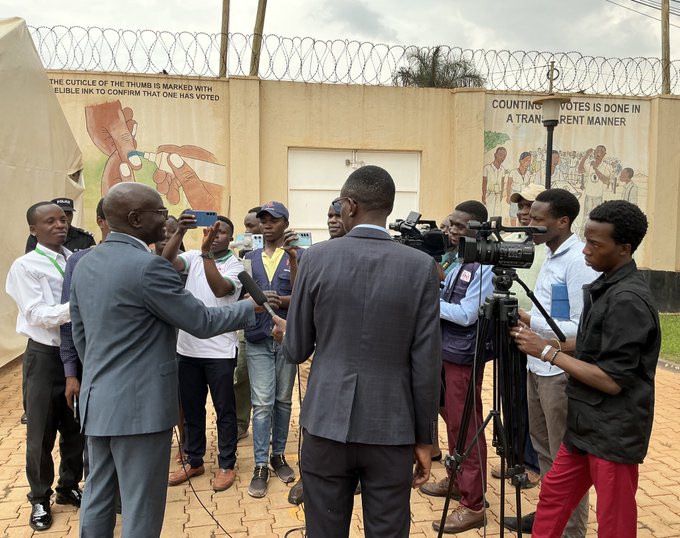Should Kisaka have resigned instead of waiting to be fired over kiteezi landfill disaster?
Kisaka's dismissal, alongside other top KCCA officials, has raised questions about accountability in public office. In many other countries, it is common for high-ranking officials to voluntarily resign when such disasters occur under their watch. By doing so, they take responsibility and allow for new leadership to address the issues at hand.

The sacking of Dorothy Kisaka, Executive Director of Kampala Capital City Authority (KCCA), following the Kiteezi Landfill disaster has sparked debate over whether she should have stepped down voluntarily instead of waiting to be dismissed by President Museveni.
The Inspector General of Government (IGG) report highlighted severe negligence on the part of KCCA leadership, which ultimately led to the collapse of the landfill, resulting in the tragic loss of 35 lives.
Kisaka’s dismissal, alongside other top KCCA officials, has raised questions about accountability in public office. In many other countries, it is common for high-ranking officials to voluntarily resign when such disasters occur under their watch. By doing so, they take responsibility and allow for new leadership to address the issues at hand.
In Kisaka’s case, her decision to remain in office until she was fired has led to criticism that she failed to take personal responsibility for the crisis.
Public sentiment reflects the gravity of the situation. The landfill collapse was not only a disaster in terms of human lives but also revealed the chronic mismanagement of public resources and the environment. As KCCA’s top executive, Kisaka was expected to oversee the proper management of such key city infrastructures, and her failure to prevent this disaster has now come to define her leadership.
Many believe that by resigning, Kisaka could have salvaged some dignity while sending a clear message that she acknowledges the failure under her leadership. Her resignation would have also offered her a chance to bow out gracefully rather than waiting for the forceful hand of the President.
However, others argue that Kisaka may have been waiting for due process. Given the complexities of public service and government investigations, it’s possible she believed the IGG and other authorities should be allowed to fully investigate the matter before she made any moves. Resigning too early, in this view, might have been perceived as an admission of guilt before all facts were established.
President Museveni, in exercising his constitutional authority under Article 172 (1) (a) of the 1995 Constitution to dismiss Kisaka and her team, clearly viewed their actions—or lack thereof—as a failure of leadership that warranted immediate dismissal. In his official statement, the President emphasized that “the severe oversight and negligence exhibited by these officials” led to their dismissal.
In cases like this, stepping down voluntarily can serve as a crucial public accountability gesture. Leadership isn’t just about being at the helm during good times; it’s also about owning up when things go wrong. For Kisaka, her decision to remain in office may now tarnish her reputation, as her tenure at KCCA will be remembered for the landfill collapse and the aftermath that followed.
The discussion around whether Kisaka should have resigned also taps into a broader conversation on public officials in Uganda and their commitment to transparency, accountability, and moral leadership. Would stepping down have shown a more profound commitment to the public good? And would it have helped rebuild public trust in KCCA’s ability to handle such disasters in the future?
Ultimately, Kisaka’s departure whether through resignation or firing was inevitable after the Kiteezi disaster. But her choice to wait for the President’s action rather than proactively stepping down may have prolonged the public’s frustration with her leadership.
Now, as KCCA prepares for new leadership, the question lingers: could Kisaka’s legacy have been different if she had taken the first step herself?







